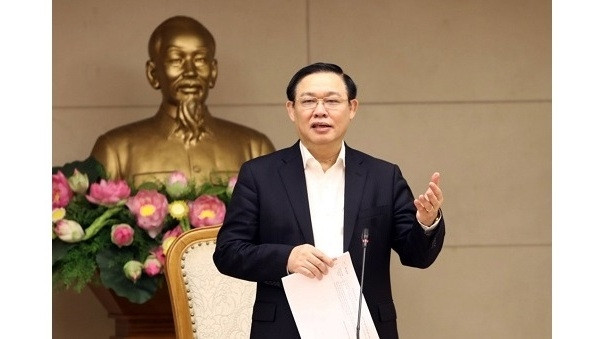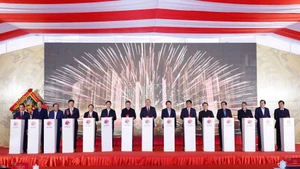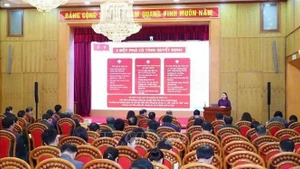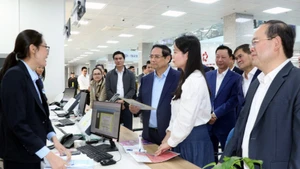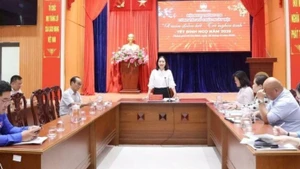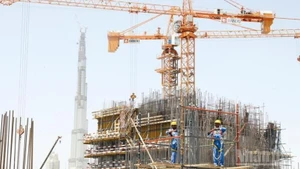The senior government made the direction while chairing a Hanoi meeting hosted by the Central Steering Committee on Salary and Social Policy Reform on November 22, discussing preparations for the implementation of the wage reform policy in accordance with Resolution No. 27/NQ-TW dated May 21, 2018 by the Central Party Committee.
According to Deputy PM Hue, the meeting is important for assessing solutions that have been implemented and building relevant legal bases in the current period and the whole year of 2020, before implementing the new salary policy from the beginning of 2021.
Hue, who is also the head of the Central Steering Committee on Salary and Social Policy Reform, emphasised that reforming the apparatus, streamlining the payroll and innovating the operation of public agencies are not about reducing the number of staff but declining dependence of public units on the State budget, on the basis of streamlining administrative agencies and promoting their dynamism and efficiency.
He also informed that the Central Party Committee has also decided to set aside 40% of the central budget exceeded revenue and 70% of the local budget exceeded collection during 2018-2020 for new salary reform from 2021.
Hue evaluated that since the issuance of Resolution 27, the relevant agencies have implemented a number of important works. Recently, the National Assembly passed the revised Labour Code, in which institutionalising several key contents, such as minimum wages, wage boards and methods of payment.
The Government is also preparing to issue a decree on pilot management of labourers, wages and bonuses at State-owned enterprises. The Prime Minister also issued decisions on specific wage mechanisms for a number of agencies and organisations in the political system, such as some units under the Ministries of Finance, Agriculture and Rural Development and Transportation.
Hue also revealed that the relevant ministries and sectors, including defence and security sector, will propose salary and payroll policies for their own sectors. In which, the Ministry of Home Affairs is tasked with setting up a reporting regime on the implementation of wage reform policy.
At the meeting, the Steering Committee members discusses issues related to the construction of new salary scales and payrolls and the allocation of resources from the State budget for salary reform.
